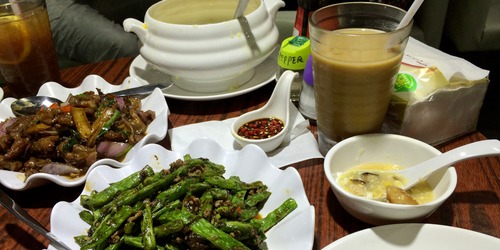Hong Kong to have first halal-certified restaurants under Q-mark scheme by year end
A clutch of Hong Kong-based halal certified restaurants is set to come under the city’s Q-mark scheme by the end of the year.
Paul Chan Mo-po, the city’s finance secretary said that broadening global promotional efforts to lure Muslim tourists is the next step.
The rise of the halal economy reflected a wider shift and signalled the growing economic influence of the Global South, the South China Morning Post cited him as saying.
“We are working to ensure that our tourism and hospitality sector is increasingly welcoming to Muslim travellers,” he said at the forum co-organised by the Hong Kong General Chamber of Commerce and the Federation of Hong Kong Industries.
Federation chairman Anthony Lam Sai-ho said the first batch of restaurants receiving the Q-mark should be ready to welcome guests by the end of 2025 or first quarter next year.
“We hope this will be a start. These restaurants would have a first-mover advantage, and Q-Mark-accredited restaurants would eventually be all over Hong Kong,” he said.
Hong Kong welcomed 54,000 visitors from the Middle East in the first eight months through August, 40% up year-on-year. The city hosted 44.5 million tourists last year, including a 42% rise in arrivals from Indonesia and 50% increase from Malaysia.
The city is positioned to support the growth of Islamic finance and was attracting professionals with experience in the sector, the finance secretary added.
“We already have the legal and regulatory frameworks in place to support Sharia-compliant instruments like sukuk.”
The federation and the Islamic Community Fund launched the city’s Q-mark halal scheme in August, designed to ease halal dining for Muslim residents and tourists.
Islam prohibits Muslims from consuming items such as pork and alcohol. Livestock must be slaughtered according to the Shariah doctrine for it be permissible for consumption. Therefore, food served at restaurants must be prepared separately to avoid cross-contamination, while cooking equipment and utensils should be thoroughly cleaned.
“This might involve the remodelling of kitchens and staff training, but it’s a hurdle people have to get used to,” Lam said. There were several opportunities for Hong Kong businesses across the catering industry, such as investing in the supply chain, including importing halal-certified meat from countries such as Australia and Brazil.
Speakers on the panel also noted that businesses interested in the halal market should educate themselves about the Islamic world, including its two sects, the Shia and Sunni, and their differences.
Lam said companies had much to learn and should look beyond the Middle East to South Asia and Southeast Asia, which also had large Muslim populations.
“Even within the Gulf countries, they have different traditions and different political stances,” he said.


Salaam Gateway